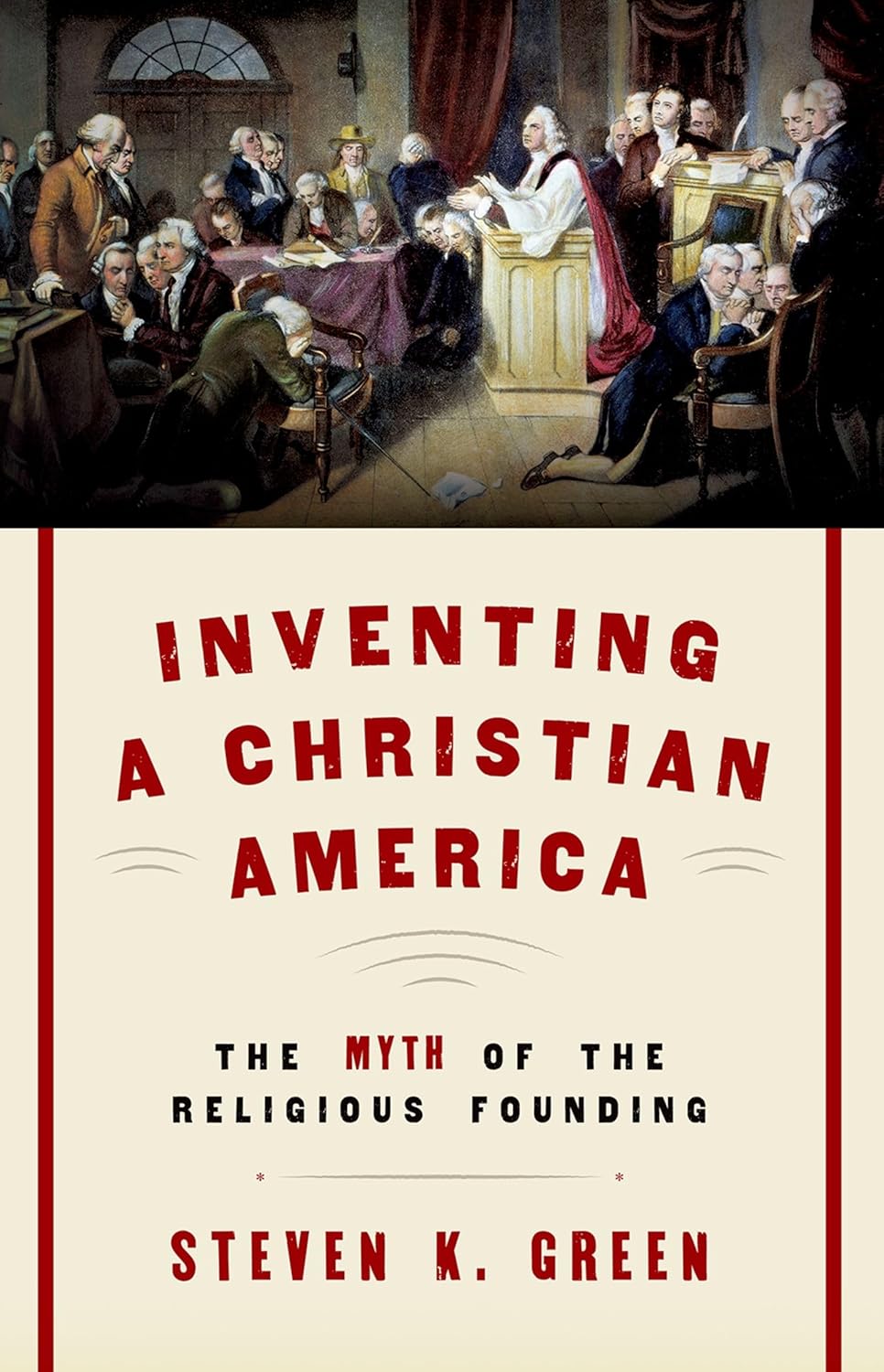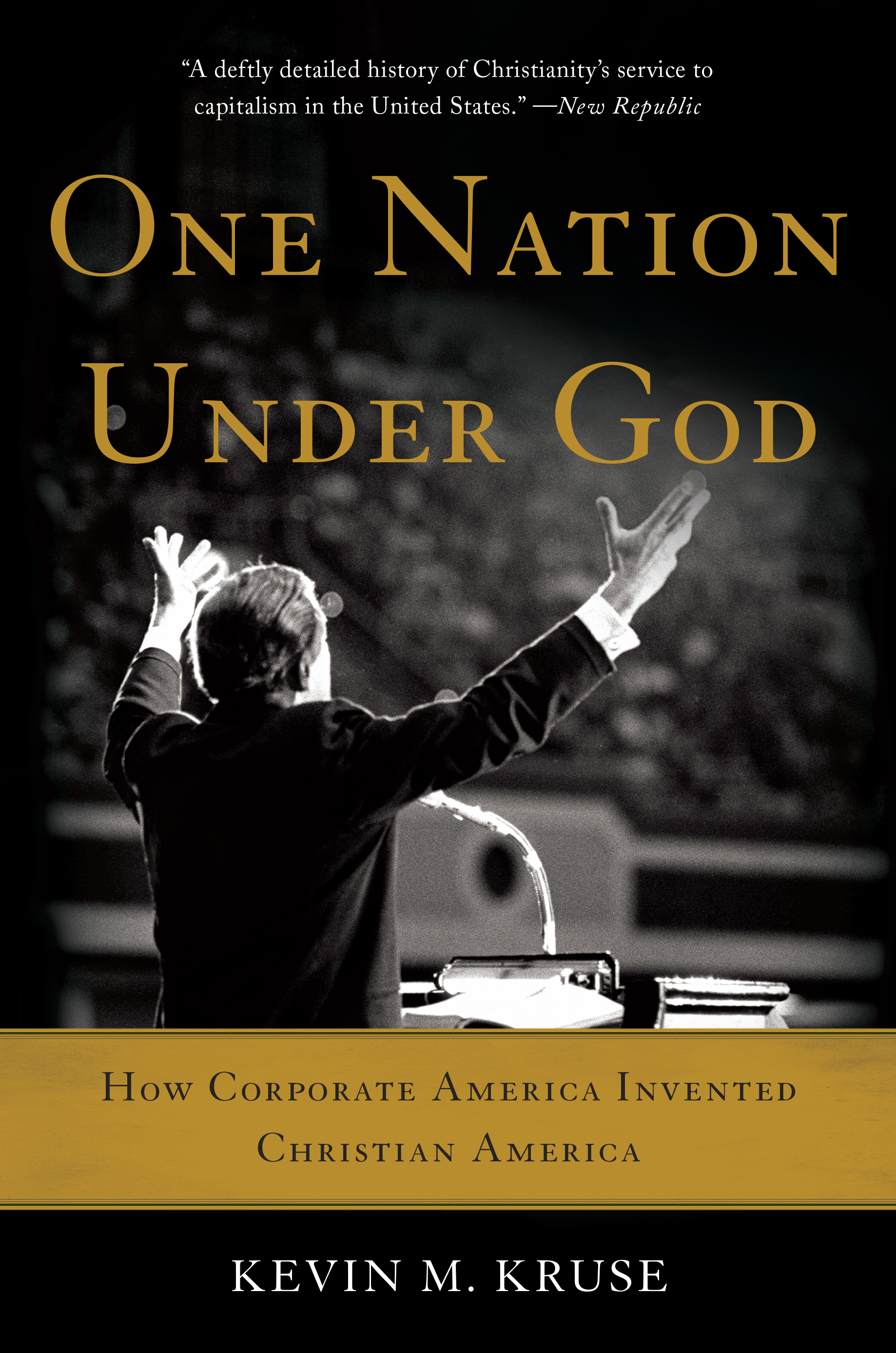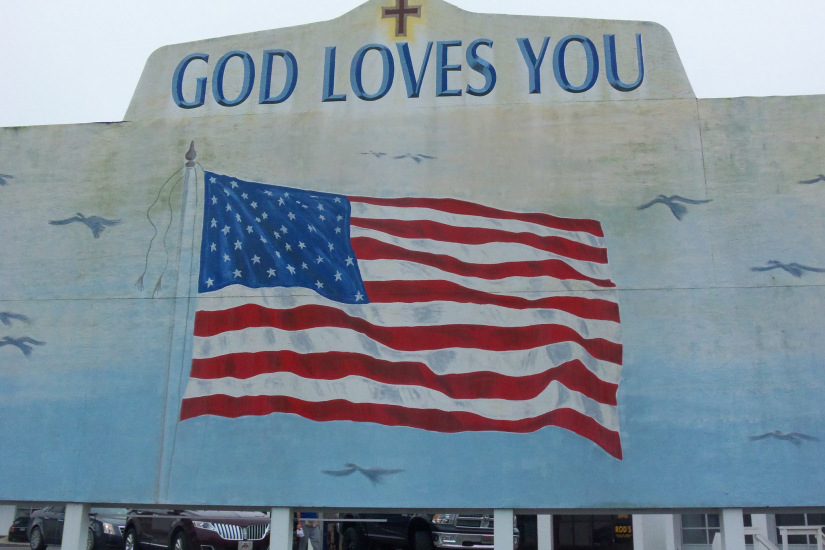Green dates the idea of a Christian nation to the Second Great Awakening, which occurred at a time—the antebellum era—when Americans were striving to create a cohesive national identity. Religious competition remained intense, but more and more of the competing denominations were evangelicals who conflated their nationalism and religion in ways that made divine intervention and providential thinking suitable for politics. It was this second American generation, rather than the Founders, who created the myth that has been with us in various forms ever since.
The various forms are important; the original myth is not the same as the one currently in fashion. Both see God’s guiding hand behind the nation’s history and regard Christianity as the basis of republican principles. The old myth, however, was optimistic and tried to be inclusive, which was possible in what was still an overwhelmingly Protestant country. It was oriented toward the future and intent on explaining a providential American destiny. The new myth, by contrast, is sectarian and divisive in a country full of Catholics, Muslims, Jews, Buddhists, etc., not to mention agnostics, atheists, and the sometimes-inchoate mass who define themselves as spiritual. Rather than look to tomorrow, today’s myth appeals to those who think they have lost an ideal past.
But these different forms are related, and their linkage is evident in an incident now long forgotten, which Green has treated elsewhere: the so-called Christian Amendment to the Constitution during the Civil War. The amendment would have altered the Preamble to read, with changes in italics, “We, the People of the United States, recognizing the being and attributes of Almighty God, the Divine Authority of the Holy Scriptures, the law of God as the paramount rule, and Jesus, the Messiah, the Savior and Lord of all, in order to form a more perfect union . . .” With the nation torn apart and Union armies going down to defeat, the amendment’s proponents blamed the Constitution. As Felix R. Brunot, who was instrumental in the attempt to pass the amendment, declared, “Our nation is Christian—the Constitution is unchristian.” Brunot was partially right. Most Americans were Christian (although this did not make the nation Christian), but they had, as Green argues, consciously decided not to make their government Christian. And in defeating the Christian amendment, Americans decided once again not to do so.


